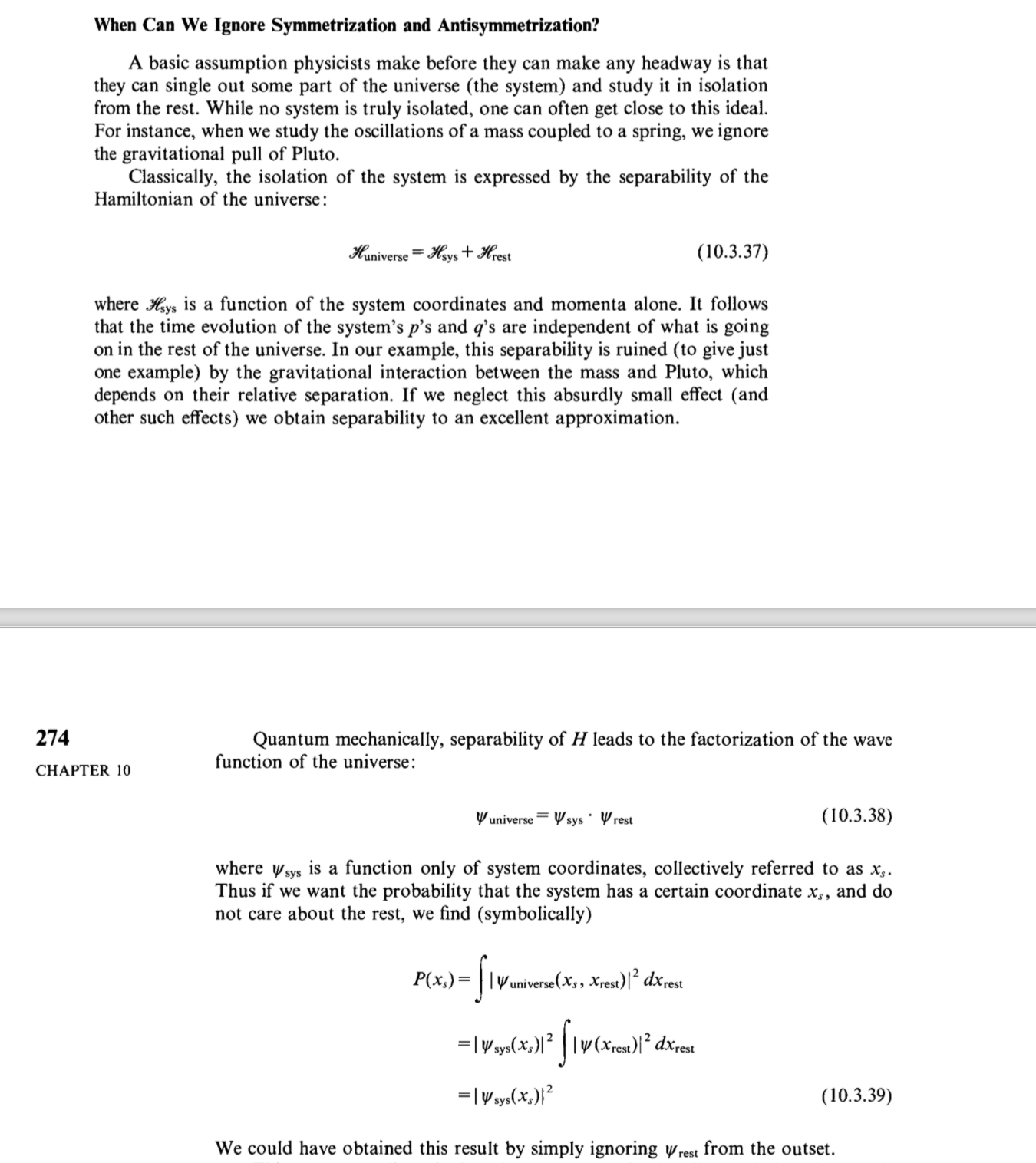In Shankar's Principles of Quantum Mechanics, I recently came across the attached section.
I am not sure I agree with equation 10.3.38 in particular. What is clear is that, if the Hamiltonian (operator) of the universe is separable as in 10.3.37 (but promoted to operators), then a basis for the Hilbert space of the universe can be formed from direct products of eigenstates of $H_{sys}$ and $H_{rest}$, because these would be eigenstates of the Hermitian operator $H$. But I do not see why that a priori implies that the state of the universe ought to be in the form 10.3.38 (10.3.38 is of course projected into position space, but that is of no consequence to what I'm asking about). Why couldn't the universe be in an entangled state in general in this example (ie. a state that does not factorize as in 10.3.38). It seems to me that Shankar is making an extra assumption -- that we are assuming the state is not entangled -- in this case. Is my understanding correct?

